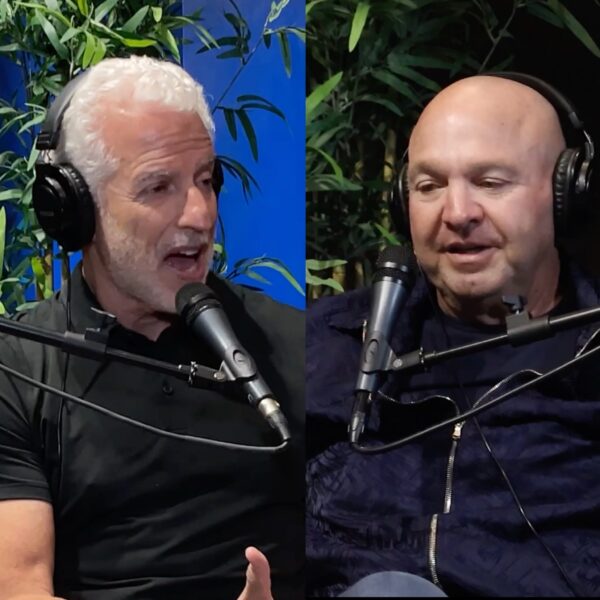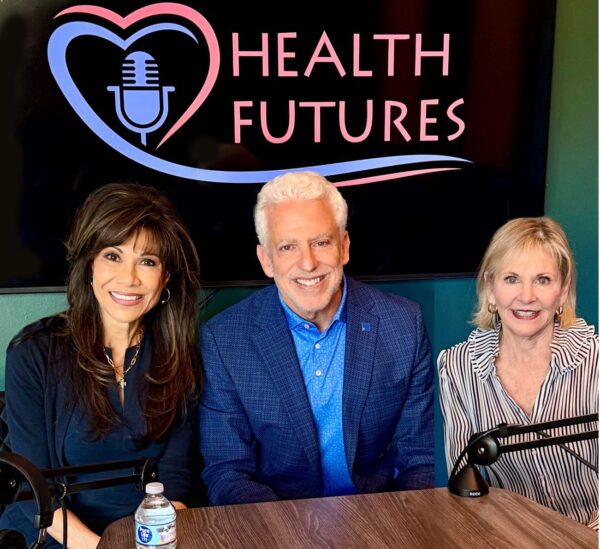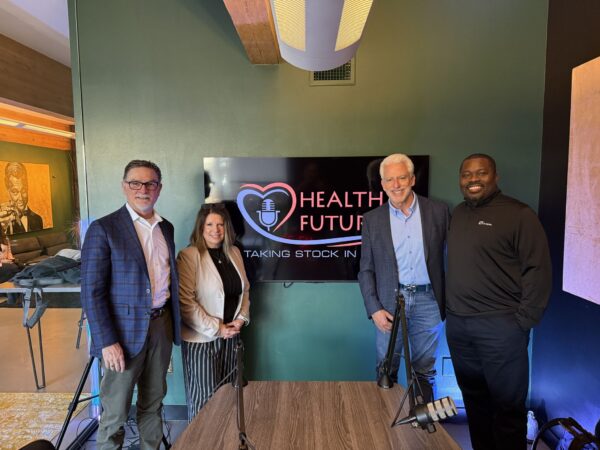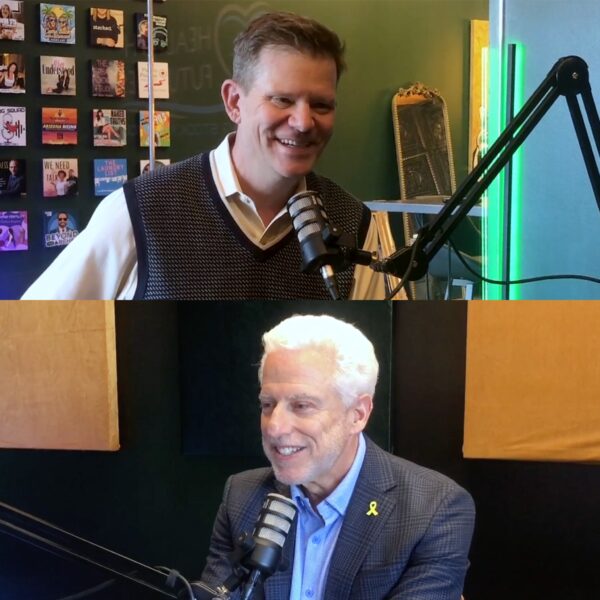Our podcasted show continues as we follow Health Futures into its all-podcast era. In this episode, host Bob Roth sits down with longtime friend, Navy veteran, serial entrepreneur, and hospice innovation leader Tom Maxwell, chairman of Maxwell TEC. Together they explore how predictive analytics, texting platforms, and culture-driven leadership are changing end-of-life care, strengthening caregivers, and helping families say goodbye with dignity while aging safely at home.
🎧 For the full episode, CLICK HERE
From Navy Corpsman to Health Care Innovator
Maxwell’s path into health care began far from technology hubs. As he told Roth, he was “a dumb kid from Amarillo, Texas,” who started as an EMT and volunteer firefighter before joining the Navy as a corpsman in 1990. Ten years of service gave him a deep appreciation for caring under pressure and working in unpredictable environments.
After leaving the Navy, he was recruited as a computer-based training developer, despite having “pretty much learned on the job.” That led him into software, operations, and leadership roles at Millbrook and GE, where he discovered his talent for scaling teams and systems.
A Defining Chapter with April Anthony and Homecare Homebase
A major turning point came when industry trailblazer April Anthony recruited him to Homecare Homebase. Maxwell recalled, “I started as vice president of operations, and six weeks later I was the CEO.”
He spent nearly a decade helping transform the company into one of the most influential platforms in home health and hospice. “I was the COO for six years… then became chief strategy officer,” he said, guiding the organization through rapid growth and a major sale.
Retirement Didn’t Stick, So Maxwell TEC Was Born
After leaving Homecare Homebase in 2016, Maxwell and his wife Jennifer tried to retire. “She told me, ‘Hey, fatty, get off the couch. You’ve got to find something to do,’” he joked.
They quickly launched what is now Maxwell TEC, a consulting and innovation company with more than 130 experts nationwide. “I work for Jennifer,” he told Roth. “She’s way smarter than I am.”
Maxwell also joined multiple boards, helping build companies across the hospice, pharmacy, data, and analytics space.
The Moment With His Nana That Changed Everything
Maxwell shared the story that shaped one of his proudest innovations. When his grandmother was nearing the end of life, a hospice chaplain quietly told her, “You’re about to pass away. You should call your family members.”
Maxwell received a text from his father, stepped away from the golf course, and “talked to Nana for 45 minutes.” She died the next day.
“That was amazing,” he said. “Most people don’t get to say goodbye.”
This experience inspired MUSE, the predictive analytics platform he helped create to identify when a hospice patient is likely entering their final 10 days. “Our goal is that if Nana is going to pass away in the next 10 days… let’s make sure we’re doing something different for her,” he explained.
MUSE has since been acquired, merged, and rebranded as Mosaic, where Maxwell still serves on the board.
A Family Foundation Rooted in Kindness
Maxwell and his wife also created the Be Kind To All Foundation, supporting military families, children, and people facing end-of-life transitions.
He shared the origin: “They said your password should be something meaningful. So I put B-K-N-D-2-ALL… and it became our foundation.”
One of its missions is helping families travel home to say goodbye: “I want to build that experience for everybody.”
Nana Connect: Texting That Makes Care More Human
Maxwell said the idea for Nana Connect came from realizing, “Patients don’t want an app. They hate apps. They just want text messages.”
Nana Connect uses conversational texting to send visit reminders, check in on symptoms, support families after discharge, and offer bereavement help.
The bereavement tool has been especially powerful. Maxwell shared one message from a grieving spouse: “The social worker convinced me to get in bed with my husband. He died in my arms.”
Clinicians are using these real-time messages to celebrate caregivers and strengthen culture. “It’s amazing for morale, and it’s what hospice is about,” Maxwell added.
Documentation, Workforce, and Why AI Must Help
Maxwell and Roth discussed why burnout in home health is so high. “If I told a nurse in a hospital to go home and chart for four hours, they wouldn’t work there,” Maxwell said. “And that’s what we’re doing in home health.”
He believes ambient listening and AI-assisted documentation are essential to fixing this, along with more intentional, data-informed visits and stronger caregiver support.
A Personal Transformation: 325 Pounds to 200
Roth asked about Maxwell’s health journey, noting he is “literally almost half the size you used to be.”
Maxwell explained that turning 50, and an upcoming golf trip to Ireland, forced him to confront his health. “There was no way my fat butt could do ten days in a row,” he admitted.
He switched to a strict carnivore-style diet, eliminated sugar, committed to daily workouts, used cold plunges and sauna, and tracked sleep.
“I was 325 pounds,” he said. “Now I’m right around 200.”
His waist dropped from a 43 to 33. “I put on my fat pants sometimes,” he laughed. “You look at them and say, ‘You were huge.’”
The Future of Aging at Home
Both Roth and Maxwell agreed that the aging boom is one of the greatest challenges of our time.
“People want to age in their home,” Maxwell said. “Nobody wants to go to the hospital.”
He believes the path forward requires smarter technology, stronger caregiver pipelines, more accessible homes, and documentation tools that allow clinicians to truly care.
Roth closed by calling it “one of the greatest problems of our generation, maybe one of the greatest in human history,” to which Maxwell replied: “We have to solve it. We’re running out of time.”




